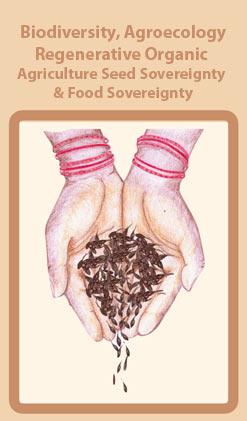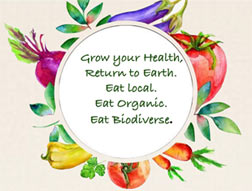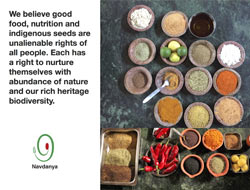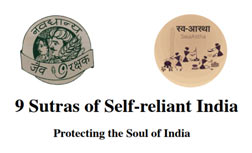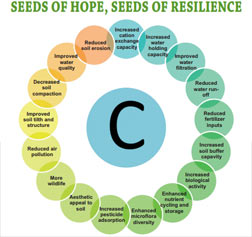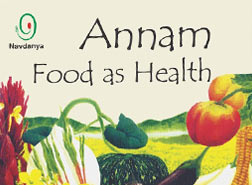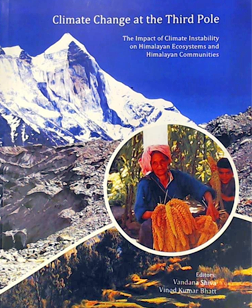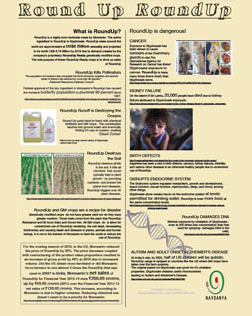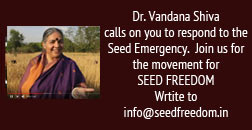Navdanya, Research Foundation for Science, Technology and Ecology, Initiative for Health and Equity in Society and India International Centre organized a Conference on “Poison Free Food: Organic Farming for Health & Safety” on July 7, 2011 held at Lecture Hall, India International Centre (Annexe), Lodhi Road, New Delhi.
The conference was inaugurated by Prof M.G.K. Menon, Chair of India International Centre and Chair of the Supreme Court Appointed Committee on Toxics.
Food which should be the source of health is becoming a threat to our lives because poisons and toxic
substances are increasingly contaminating farm produce, reaching our table and spreading disease. Through the systematic omission of consumer caution about the hazards of chemical industrial farming and a biased misinformed propaganda against organic practices, industrial lobbies are trying to spread the myth that chemical farming is safe, and organic isn’t. This couldn’t be farther from truth.
Dr Vandana Shiva, Founder of Navdanya and Dr Vaibhav Singh, medical doctor, showed in their presentations how toxic food has become the single biggest cause for disease in India. Food needs to once again become a source of health and not of hazards.
The premiere screening of Marie Monique Robin’s award winning film “Our Daily Poison” well showed how we are drowning in poison and toxics. In 1984, the tragic Bhopal disaster caused by leak from a pesticide plant exposed the deadly impact of pesticides. Twenty five years of aerial sprays of hazardous pesticides have resulted in severe health & ecological hazards. Pesticides like Endosulfan sprayed on food have killed more than 1000 people and more than 9000 victims of Endosufan have been identified in Kasargod district of Kerala, with over 4800 patients bedridden. Similar reports have come from other parts of India.
Dr Shanbhag of the Human Rights Protection Foundation, who was invited by the Government of Karnataka to do medical studies on the victims of Endosulfan described in detail the crippling neurological, physical, genetic, immunological hazards that victims suffer from. Mr Sudheer from the Endosulfan Campaign reported on the long and hard struggle of the victims to get justice. Pinky Anand, Senior Advocate to the Supreme Court, stressed that the right to health is a right to life and such killing and crippling of people is a violation of this fundamental right to life.
Man made chemicals, toxins & GMOs have saturated and contaminated our environment increasing the exposure to health hazards for every living creature, while also reducing our immune system’s capacity to fight disease.
In genetically modified Bt crops, such deadly pesticides are incorporated directly into the seed in the form of the toxic protein Cry1Ac. While naturally occurring Bt only becomes toxic when processed in the guts of insects, the Bt toxin produced by genetically engineered crops is active and released continuously by every cell of the plant. In 2006, at least 1800 sheep in Andhra Pradesh were reported dead from severe toxicity after grazing on Bt cotton fields. The health risks of GMOs were confirmed by a recent Canadian study in which scientists detected traces of the Bt toxin in human blood: the subjects had no direct exposure to pesticides, but all regularly consumed GM soybeans, corn, and potatoes.
Dr Mira Shiva, medical doctor and Coordinator of Initiative for Health and Equity in Society, who had been invited by the Environment Minister for a briefing on the health impact of Bt Brinjal said that there are adequate independent studies showing that Bt toxins are severely harmful to health. She also referred to the regulatory chaos with biosafety being kicked like a football from GEAC to the Food Safety and Standards Authority and now to the proposed BRAI (Biotechnology Regulatory Authority).
Kapil Mishra of Greenpeace exposed how illegal trials of GM crops are rampant with the latest cases of GM corn in Karnataka. Addie, intern at Navdanya, synthesized the health and environmental risks of Bt crops.
We along with large number of citizens are deeply concerned to find that the Agriculture Minister has totally denied the health hazards of pesticides, while also misleading the Parliament that the States want the use of Endosulfan to continue. In India, consistent movements have come together under the banner of “Endosulfan Spray Protest Action Committee“ forcing the Kerala & Karnataka Government to ban Endosulfan. The National Human Rights Commission has clearly recommended the Ban of Endosulfan on health grounds. Recognizing the magnitude of the health & ecological hazards over 74 countries have banned Endosulfan & over 100 countries had asked for a ban at the UN Stockholm Conference on Persistent Organic Pollution (POP) held in Geneva in April 2011. India too agreed to the ban with provision of few years to phase out.
Similarly ecological & public health concerns related to GMOs led to a ban in about 30 countries.
The Bt Brinjal Moratorium followed widespread expression of ecological & health concerns in spite of tremendous pressure from GM corporates. Corporate pressure for their GM crops to create & control the GM market continues unabated.
Food Safety & Biosafety cannot be disregarded. Since they are basically public health concerns
Proof of safety cannot be left in the hands of conflict of interest ridden bodies. Endosulfan is just one of the many chemicals harmful to health ,aggressively marketed and used frequently and repeatedly by the manufacturers, with agriculture authorities having supported their use in the name of ‘modern’ and ‘scientific’ agriculture. Denial of unbiased information about related health hazards from independent sources concerned about Safety & public health, as well as information about known emergence of Pesticide Resistance requiring higher doses, repeated spraying has added to the pesticide related health hazards.
Similarly, authorities and lobbies try to aggressively sell the concept that chemical agriculture ensures greater food production. As the problems start unfolding the aggressive push that GMOs will provide food security is evident. The concerns of Safety Biosafety & Public Health implicaltions have to be addressed.
On May 13, 2011, the Supreme Court of India ordered an interim ban on Endosulfan. We need to strengthen the ban and raise awareness about the real hazards in chemical industrial farming. Safe and poison free alternatives exist.
Dr Vijay Kumar from the Rural Development Ministry who led the Andhra Pradesh initiative for Poison Free Agriculture showed how farmers can increase production and incomes by shedding toxic pesticides. Over the last 25 years our work in Navdanya & its partner organizations has established that chemical free ecological farming is the most sustainable method of pest control & the way forward for provision of unpolluted, uncontaminated safe food. Poison free food is a possibility, a necessity and our fundamental right: it is only by steadily halting reliance on chemicals in farming that we can ensure it.
Navdanya also released its latest report “Corporate Hijack of Land” as part of its Bhoo Swaraj – Land Sovereignty Campaign.
POISON FREE FOOD: ORGANIC FARMING FOR HEALTH & SAFETY
July 7, 2011
Lecture Hall, India International Centre - Annexe
Lodhi Road, New Delhi.
| 9.30 |
Registration |
|
| 10.00 – 10.15 |
Welcome Speech |
Dr Vandana Shiva (Navdanya) |
| 10.15 – 10.30 |
Inaugural Address |
Prof. M.G.K. Menon (President, India International Centre) |
|
10.30 – 11.00 |
Health and Environment Problems linked to Chemical Agriculture |
Dr Vandana Shiva – Chair Dr Vaibhav Singh (Max Hospital) |
| 11.00 – 1.00 |
Screening of film |
Our Daily Poison By Marie Monique Robin |
| 1.00 – 2.00 |
LUNCH |
|
|
2.00 – 3.00 Session II |
Short film on Endosulfan The Endosulfan Issue |
Ms Pinky Anand – Chair Dr Ravindranath Shanbhag Mr Sudheer Kumar |
|
3.00 – 4.00 Session III |
Bt Toxins, GM Foods& Biosafety |
Dr Mira Shiva – Chair Mr Kapil Mishra Ms Addie (Navdanya intern) |
|
4.00 – 4.30 Concluding Session |
Chemical Free Agriculture: Farming for Health and Sustainable Livelihoods |
Dr Vandana Shiva – Chair Mr Vijay Kumar |


